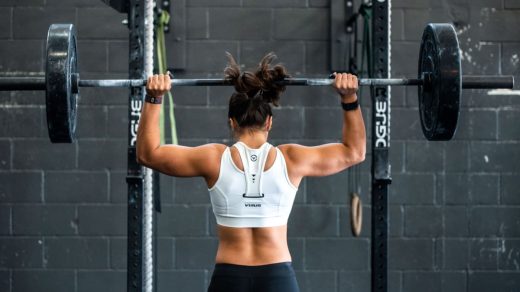Trailers are one of the coolest and life-changing vehicles that you could ever buy. There are so many interesting things you can do with your life if you’re in possession of one of these bad boys. If you can’t afford traditional housing or desire a nomadic lifestyle, a trailer is a great option.
However, it is a serious investment and they aren’t exactly cheap either. So choosing the right trailer could theoretically make or break your dream. If you aren’t comfortable the space isn’t conducive to your hobbies and lifestyle, then it’s all for naught. Trailers come in many different varieties as well. Therefore, it’s important to get informed and start thinking about exactly what you’ll need to get the most use out of your investment.

Amenities, Amenities, Amenities
As the heading says, it’s all about amenities. And there is a wide variety to choose from. Trailers come in different types and they typically are outfitted according to their intended purpose. For example, trailers come in a few basic varieties.
Make sure you get the variety that suits your use. To do that you need to have a good idea of what’s available and what you intend to do with it. The site CaravanWoods.com has a lot of information and pictures of the different varieties available to the consumer. Whatever you decide, make sure that your camper build is fully-customizable.
- Camping trailers – camping trailers are outfitted with everything you need to have the most amazing camping trip you’ve ever had, but they aren’t necessarily designed for long-term living and survival.
- Teardrop trailers – these campers are really small. They’re basically camping trailers but are extremely lightweight which makes them suitable for small cars. They have very limited inside space. They have a highly-functional kitchen area but it’s a pop-up setup that’s accessed on the backside while standing.
- Travel trailers – these are the big trailers that are intended for long-term living. They are roomier than camping trailers but are much heavier.
- Pop-up campers – these campers are bigger than other camping trailers because they have a pop-up canvas or nylon mesh top that can be raised when parked for improved space.
- Hybrid trailers – these particular towable homes are a mix between camping and travel trailers. They take advantage of the large footprint that is the signature of travel trailers but is much lighter and cheaper to operate than traditional travel trailers because they have a very lightweight pop-up top.
- Off-grid trailers – off-grid trailers are like camping trailers but they’re designed for long-term living, not just a weekend. They may have the full range of energy-efficient appliances accessible from inside the cabin but they’ll be tiny in size and power consumption. The inside cabin is on par with other long-term travel trailers in terms of space but is streamlined and stocked with components necessary for life in the bush.
- Luxury trailers – these are exactly like they sound. They are travel trailers that have all the amenities. Not only that, they often have nice mattresses, large flat-screen TVs, inside showers, toilets, and just about anything else you can think of.
When you have a good idea of what’s available, you may start to get some ideas about your needs and wants. It’s important to have a good idea of what you want so that you can get the style of a camper that can make it possible. You don’t want a teardrop camper if you’re planning to be a mountain hermit, it’s just not adequate. And on the other hand, dragging a luxury trailer with your tiny sedan for a weekend trip probably isn’t a good idea either.
Consider your use. Are you going to travel around from place to place? Are you going to find a secluded place and park it? Do you need a weekend camper to make your outdoor excursions more comfortable? Where will you sleep and cook? Will you frequent RV campgrounds to fill water tanks and dump waste? What are your electrical needs?
Don’t forget about your hobbies and career needs. Is there a working space? A place for a few guitars or art supplies?
Size, Weight, And Regulation
Now that the fun part has been decided, there are some logistical concerns that must be considered. The main one is the weight. Because we’re talking about campers and not vans or RVs, you need to consider the towing capability of your host vehicle. This information should be available in your manual, online, or from your dealer or manufacturer.
Of course, you can upgrade your tow-package, but your vehicle may still not have the engine or transmission to consistently pull your new camper. If you have a small vehicle, it’s time to moderate your expectations. You’ll need to look at the smallest and lightest campers available. That, or buy a new vehicle that’s designed to tow. If you persist in pulling a large trailer with a small car, don’t be surprised when the whole drive train goes out on you years before it’s supposed to. On the other hand, if you have a large pickup, your choices are a lot more diversified.
Length is also an issue. Longer trailers are harder to drive and park. But the real issue is related to regulation. DOT regulations vary from state to state in the US and many would-be nomads are stifled by an unexpected DOT fine that forces them to settle down somewhere and work for a while. Longer and heavier trailers are more susceptible to fines and fees. So make sure you know what’s expected from you and talk to the dealer to avoid getting grounded by the law.

Style, Affordability, And Ease Of Use
There’s still a lot to consider. Some trailers, like the teardrop or VW bus trailer, are super stylish. Others, like travel trailers and popups, are less so. So make sure you’re happy with the look if that’s important to you. Otherwise, the function should be your primary concern between the two.
Affordability is always important. But don’t just consider the initial cost of the vehicle itself. Heavy campers require larger vehicles which come with higher fuel and maintenance expenses. More appliances and features also tend to equal increased costs.
A Comprehensive Plan Guarantees Success
This is a big investment and it’s one that will very likely change your life. But in order for that to happen, everything needs to fit right. That means knowing exactly what is available and what you need. Hobbies and lifestyle needs should also be factored in. Furthermore, considerate buyers will consider the fuel and maintenance costs in addition to all of the little fees like campsite rental, waste dumping expenses, and water fill-up costs.
If everything is thought-out and well-organized, the trailer will fit perfectly into your life and give you endless hours of enjoyment.




Recent Comments